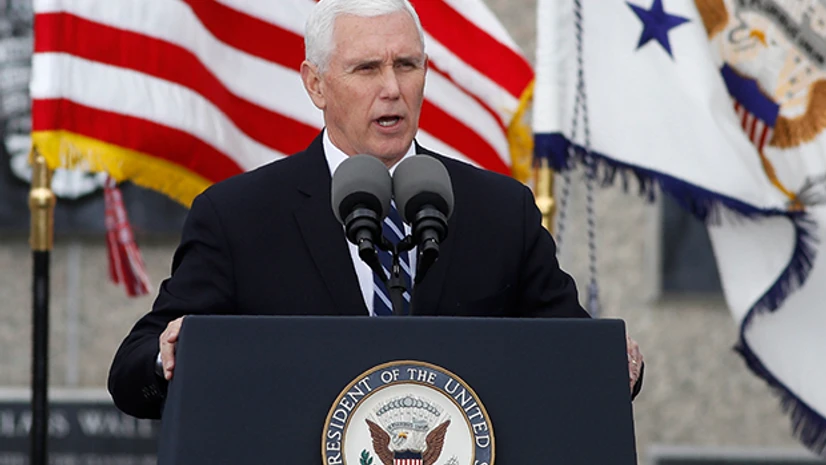Outgoing US Vice President Mike Pence on Saturday urged President-elect Joe Biden's administration to exercise 'eternal vigilance', especially when it comes to US-China relations.
In one of his final appearances before leaving the White House on January 20, Pence told the incoming Biden administration to 'stay the course' and 'stand up to Chinese aggression and trade abuses', while speaking to sailors from Naval Air Station Lemoore, Fox News reported.
"As a new American administration prepares to take office, we do well to remember as Americans that the price of freedom is eternal vigilance... And a free and open Indo-Pacific is essential to our prosperity, our security, and the vitality of freedom in the world."
Pence's remarks come days after President Donald Trump's administration declassified the US strategy for tackling the growing threat between China and nations in the Indo-Pacific region, according to Fox News.
As per the United States Strategic Framework for the Indo-Pacific (henceforth, the Framework), it envisioned "accelerating India's rise", blocking China from establishing "illiberal spheres of influence", and maintaining "US strategic primacy" in the region.
Also Read
"The declassification of the Framework today demonstrates, with transparency, America's strategic commitments to the Indo-Pacific and to our allies and partners in the region," wrote National Security Advisor Robert O'Brien in a memo dated January 5, 2021.
O'Brien also said that China is increasingly pressuring Indo-Pacific regions to subordinate their freedom and sovereignty to a common destiny envisioned by the Chinese Communist Party (CCP).
He also added that the goal of pushing back against China is to help allied nations in the region "who share the values and aspirations of a free and open Indo-Pacific".
According to Fox News, Pence said on Saturday that China is 'determined' to spread its dominance in the region through 'military provocations and dead diplomacy'.
The relations between the US and China have deteriorated sharply over the last year in wake of the Covid-19 pandemic, China's efforts to curtail Hong Kong's autonomy, and the US-China trade war.
(Only the headline and picture of this report may have been reworked by the Business Standard staff; the rest of the content is auto-generated from a syndicated feed.)

)
